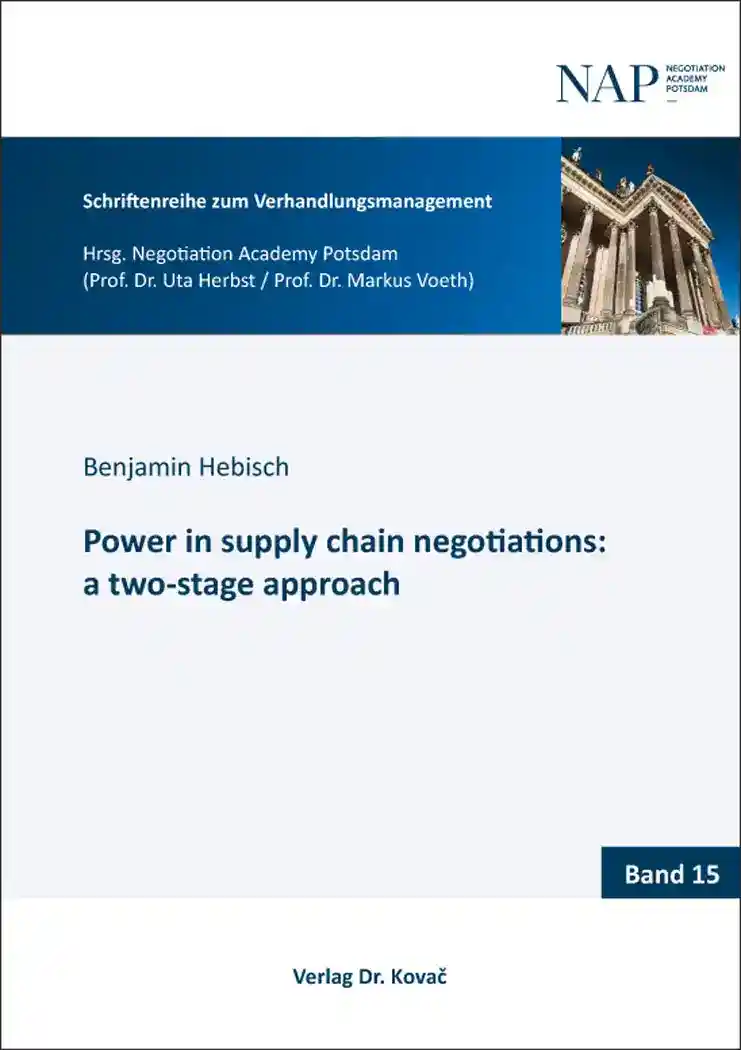Benjamin HebischPower in supply chain negotiations: a two-stage approach
Schriftenreihe zum Verhandlungsmanagement, volume 15
Hamburg 2021, 140 pages
ISBN 978-3-339-12400-5 (print) |ISBN 978-3-339-12401-2 (eBook)
About this book deutschenglish
Negotiations between buyers and suppliers directly influence a company’s costs, revenue, and consequently its profits. The outcome of these negotiations relies heavily on the companies’ as well as the negotiators’ power position. Across three empirical articles the author demonstrates how the own power position can first be identified as well as improved and subsequently used to maximize profits in negotiations between sellers and buyers. In the first paper the sources underlying buyer and supplier power are identified and weighted. The results of the first paper show the impact of each single sources on the buyer and supplier power. The number of suppliers available for one product is by far the most important source of power for both sides. The results indicate that a higher number of suppliers leads to a better power position of the buyer and simultaneously to an inferior power position of a single supplier. The second paper aims to examine the impact of the number of suppliers on the outcome of buyer-seller-negotiations thereby considering the innovation level of the products purchased. The results of the second study which are based on real negotiation data from a German car manufacturer indicate that the number of available suppliers has a stronger impact on the negotiation outcome for innovative than for functional, less innovative products. The third paper analyzes how the ability to take the counterpart’s perspective (perspective taking ability) influences the negotiation outcome. This relationship is examined for different power positions. The results indicate that a negotiator’s high perspective taking ability leads to a more unfavorable negotiation outcome compared to low perspective taking ability. Simultaneously, high perspective taking ability causes a more positive perception of the conducted negotiation than low perspective taking ability. This contradictory effect of perspective taking ability bears the risk for buyers and suppliers to assess an unfavorable outcome as positive. Finally, the results of the papers are summarized and discussed. The dissertation concludes with implications for practice, limitations of the work, and approaches for future research.
Keywords
AutomotiveBusiness-to-BusinessExperimentExpertenbefragungMacht/PowerNegotiationPerspective-taking abilitySupply Chain ManagementVerhandlungsmanagementIhr Werk im Verlag Dr. Kovač

Möchten Sie Ihre wissenschaftliche Arbeit publizieren? Erfahren Sie mehr über unsere günstigen Konditionen und unseren Service für Autorinnen und Autoren.
